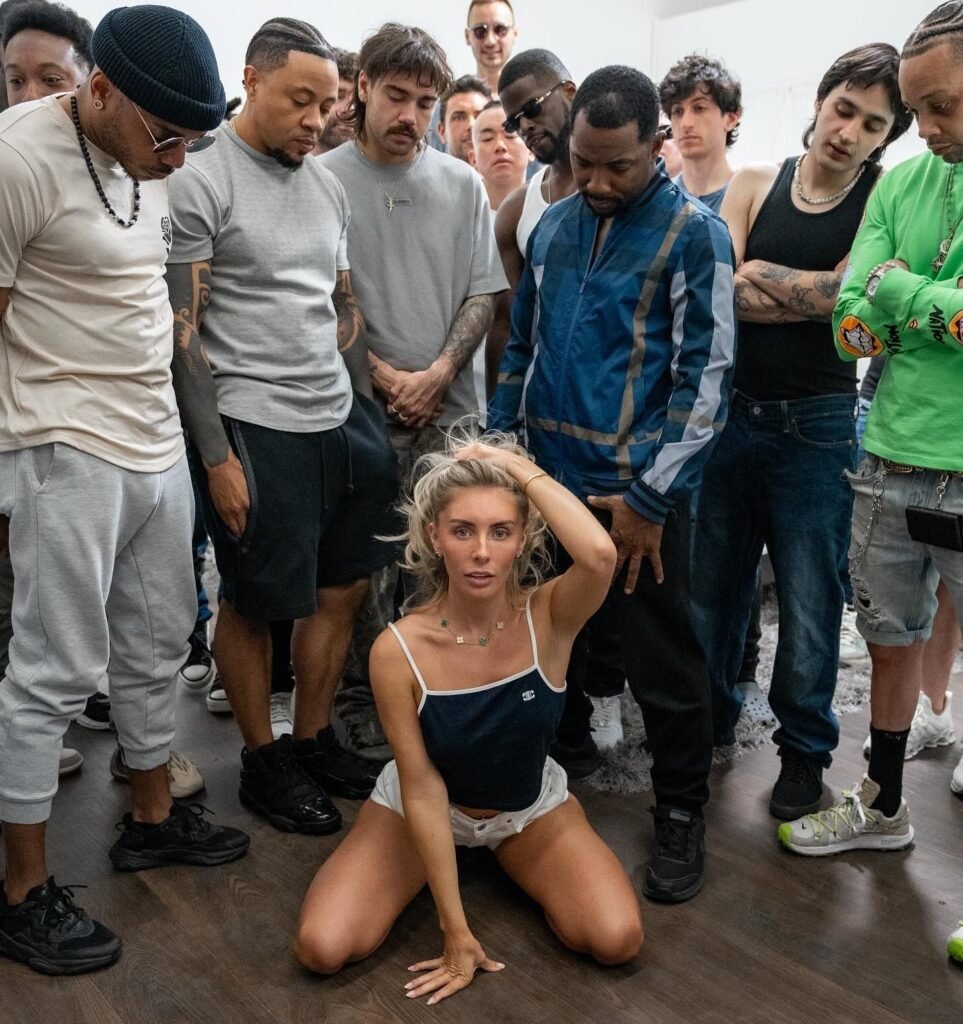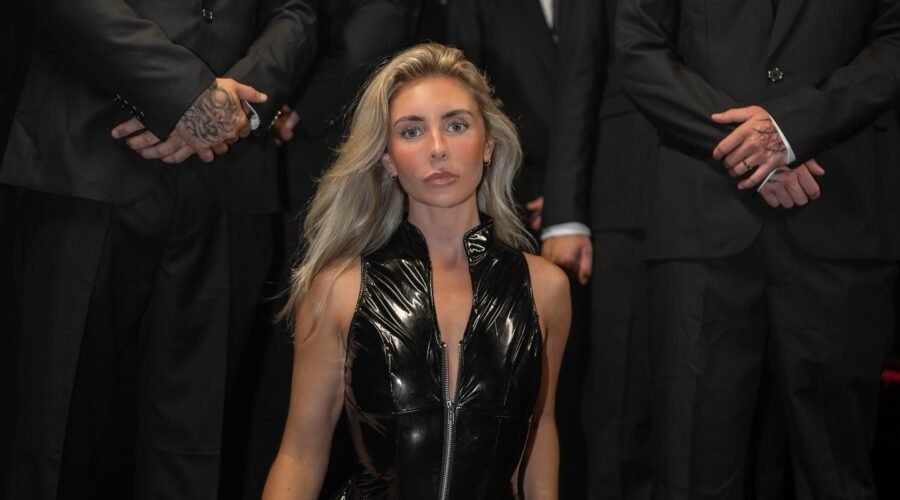Channel 4’s new programme, 1000 Men and Me: The Bonnie Blue Story, has dominated trending searches and media conversations since its announcement. This explosive Bonnie Blue documentary focuses on Bonnie Blue, real name Tia Billinger, an OnlyFans creator from Nottingham. She claims to have set a world record by having sex with more than 1,000 men in just 12 hours. The story is not just about numbers; it dives into the intense backlash, the public fascination, and the critical questions surrounding Bonnie Blue’s choices and persona.
Table of Contents
Why Is Everyone Talking About It?
Scheduled to air tonight at 10pm, the Bonnie Blue documentary includes never-seen footage from her notorious 2024 sex stunt. The film offers intimate access to her life, following Bonnie Blue through the months before, during, and after the headline-grabbing event. Channel 4 and director Victoria Silver insist that this is not ordinary prurient viewing the documentary explores what drives someone to such extremes and how society responds.
Promotional material and reviews stress that the film pushes beyond clickbait. It questions whether Bonnie Blue is a dangerous predator pandering to male fantasies or a sex-positive entrepreneur boldly living by her rules. The documentary addresses the uncomfortable, sometimes sad reality of her world, and it definitely does not shy away from discomfort, with critics calling it “sad, uncomfortable and prurient viewing”.
The Story Behind the Sensation
Bonnie Blue is no stranger to controversy. Raised in Nottinghamshire, her journey from recruitment worker to multimillionaire “sexfluencer” grabbed national attention. Her infamous record attempt combined spectacle, social media, and the economics of online adult entertainment. Many of her co-stars were young, some “barely legal” university students, spurring criticism over exploitation and the lasting impact on all involved.

After announcing an even bigger “petting zoo” stunt with intentions for 2,000 men to have sex with her in a glass box Bonnie Blue was banned from OnlyFans for violating its policy on “extreme challenges.” Channel 4’s documentary covers all of this in graphic detail, including candid scenes that the broadcaster says are “editorially justified” to give a true account of Bonnie’s work and the responses it provokes.
Debate Over Feminism, Exploitation, and Sex Positivity
The Bonnie Blue documentary comes at a time of intense debate about sexual freedom, agency, and exploitation in the UK. Is Bonnie Blue empowering herself and other women, or is she reinforcing damaging patriarchal narratives? Critics from major outlets argue that the film sometimes feels voyeuristic, even as it questions why outrage is often targeted at female sex workers and not at the men who queue up to take part.
The documentary grapples with profound questions. It invites viewers to examine their own prejudices about sex, money, and success in modern Britain. Bonnie Blue herself challenges her detractors, comparing criticism of her work to wider British cultural double standards—highlighting, for instance, the legal age of consent and common attitudes towards young men and sex.
Viewer Reactions and Media Response
Online platforms and traditional media lit up in response to early screenings. Many viewers expressed discomfort with the overt sexual content, while others praised Channel 4 for not sanitising the real experiences of those in the online adult industry. The broadcaster issued warnings ahead of the broadcast, stating that graphic scenes are essential to understanding Bonnie Blue’s day-to-day reality.
Some UK tabloids question whether the Bonnie Blue documentary should exist, worried about the implications of platforming such extreme acts. Others argue the film is “compelling but dangerous,” providing rare insight into the psyche of one of Britain’s most polarising figures.
Why the Bonnie Blue Documentary Matters Right Now
The Bonnie Blue documentary has already sparked fierce debate in the UK about personal agency, sexual norms, and the moral boundaries of reality television. Channel 4’s Commissioning Editor Tim Hancock insists the film aims to stimulate vital public discussion and confront the uncomfortable realities behind trending headlines.
For anyone following British culture, media, or debates about sex work and online fame, the Bonnie Blue documentary is impossible to ignore. As it airs, viewers will be confronted with their own assumptions—whether inspired, appalled, or left with more questions than answers about who Bonnie Blue truly is and what she represents.

